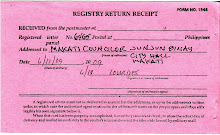RADIATION ILLNESS
http://www.doh.gov.ph/node/2969.html
Press Release/14 March 2011
Exposure from ionizing radiation following nuclear plant accidents may cause acute as well as long-term effects on health.
Health effects are largely determined by the degree and duration of exposure. The highest risk to health is found among
nuclear plant workers. Communities a few miles around the plant may also be affected. That is why evacuation maybe necessary to reduce this risk.
Very early occurrence of vomiting or very serious conditions or even death among exposed population, strongly suggest human
absorption of very high doses of ionizing radiation. Blood tests may be done to confirm exposure. Geiger counter or
dosimeter are also used to monitor progressive exposure to radiation.
Acute illness is known as acute radiation syndrome or radiation poisoning. This manifests as nausea, vomiting, fever or
diarrhea. More serious conditions appear with extreme exposure. A latent period follows and lasts for weeks or months. Then
more serious conditions affecting other organs may occur. Hair may fall and blood may be found in stools or vomit.
It is important that proper decontamination is done among those exposed. This means removing all clothes and shoes followed
by showering. Treatment is given to prevent organ damage.
Long-term effects after exposure include cancers and genetic malformations in fetuses.
Presently, Japanese authorities are implementing containment procedures to eliminate radiation leaks. People have also been
evacuated from a 12-mile radius. Hundreds have been screened for radiation exposure and so far no report of any illness was
made.
During a radiation emergency, such as fears of a nuclear plant explosion, you may be advised to create
a "shelter in place." This means you should stay inside your home or office, or perhaps another confined area indoors. To
keep your shelter in place effective, you should: close and lock all doors and windows; turn off fans, air conditioners, or
any units that bring in air from outside; move to an inner room or basement; keep your radio tuned to the emergency
response network or local news to find out what else you need to do. - Provided by United States Nuclear Regulatory
Commission
http://www.nrc.gov/about-nrc/radiation/related-info/faq.html
United States Nuclear Radiation Commission
Frequently Asked Questions (FAQ) About Radiation Protection
http://www.cellphonesafety.org/
cellphonesafety org web site
CellPhoneSafety.org was created by the National Consumer Advocacy Commission.
The NCAC aims to educate consumers on safety and economic issues surrounding certain products and services. We primarily utilize the internet to reach consumers, and we plan on growing our reader base and collecting essential feedback to create an ever-expanding consumer resource.
Vehicular Safety
Accidents
Unsafe Driving
Regulation
Consumer Advocates
Corporate Policies
Court Decisions
Insurance Issues
Legislation
Lobbyists
Health Hazards
Clinical Studies
Facts
Health Tips
Radio Frequencies
Safer Phones
Automakers
Consumer Education
Phone Manufacturers
Parents and Teens
Safety Tips
About Us
CellPhoneSafety.org was created by the National Consumer Advocacy Commission.
The NCAC aims to educate consumers on safety and economic issues surrounding certain products and services. We primarily utilize the internet to reach consumers, and we plan on growing our reader base and collecting essential feedback to create an ever-expanding consumer resource.
Unapproved Prescription Cough, Cold, and Allergy Products
http://www.fda.gov/Drugs/GuidanceComplianceRegulatoryInformation/EnforcementActivitiesbyFDA/SelectedEnforcementActionsonUnapprovedDrugs/ucm245106.htm
Subscribe to:
Post Comments (Atom)
image of registry return receipt of letter addressed to Makati councilor J. J. Binay


No comments:
Post a Comment